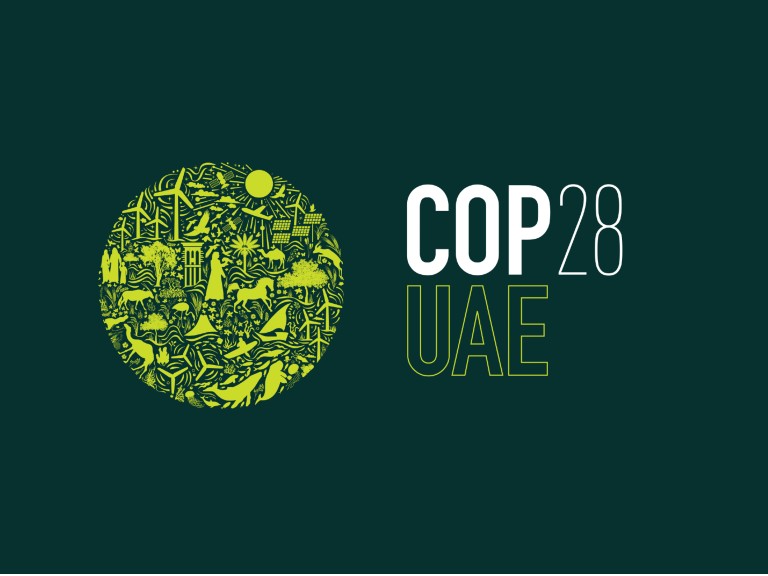Trade will be officially on the climate agenda for the first time at the 2023 UN Climate Change Conference (COP28), to be held from 30 November to 12 December in Dubai, highlighting the role of trade in addressing the drivers and impact of climate change.
At COP28, four international organizations – the International Chamber of Commerce (ICC), the International Trade Centre (ITC), the United Nations Conference on Trade and Development (UNCTAD), and the World Trade Organization (WTO) – will co-host the first-ever Trade House pavilion, where discussions will showcase proven, scalable trade-led solutions to accelerate the transition to a low-carbon economy, in a way that does not leave anyone behind.
ITC Executive Director Pamela Coke-Hamilton said: ‘A low-carbon transition must be just and inclusive, with small businesses driving the change, especially those led by women, young people, Indigenous Peoples and members of marginalized groups. Trade has a vital role to play in driving sustainable development through climate action, leaving no one behind. Join us and our partners at the Trade House.’
WTO Director-General Ngozi Okonjo-Iweala emphasized the importance of the Trade House, saying: ‘I invite you to the first-ever Trade House pavilion, a new aspect of COP28 together with Trade Day. We want to demonstrate that trade is part of the solution to the climate crisis. To support our discussions, we will bring to the table a menu of trade policy actions that could help countries reach net zero.’
According to UNCTAD Secretary-General Rebeca Grynspan: ‘Climate and trade policies need to work together. As the world is coping with the devastating effects of global warming, it’s time for trade to play its role in shaping climate action that fosters inclusive and sustainable development. This starts with the international organizations with a trade mandate joining forces, and UNCTAD is pleased to work with our partners to host this first Trade House pavilion at COP28.’
ICC Secretary-General John W.H. Denton AO said: ‘Effective policy frameworks and strengthened supply chains are essential to combatting climate change. ICC’s role as a co-convenor of the Trade House is a clear signal that the business community is not only part of the solution – but leading the charge for a more robust global trading system. This space will enable our organizations, stakeholders and partners to explore these issues in the heart of the COP28 Blue Zone.’
Focusing on small businesses
At the Trade House, ITC will highlight the role of small businesses of developing countries, especially those led by women, young people, Indigenous Peoples and members of marginalized groups, in driving lasting change.
Small businesses make up 90% of all companies and two-thirds of jobs worldwide, yet their perspectives are often not included in policymaking.
For example, agriculture is particularly vulnerable to climate change and is also a major source of greenhouse gas emissions. Smallholder farmers provide one-third of the global food supply, a figure that can go as high as 80% in some countries, yet their concerns and ideas are not reflected in crafting the legislation that impacts them.
Small businesses know they need to make the low-carbon transition – and are willing to do so – but many are currently unable to act, according to ITC research. They lack information, skills, technology and financing. In short, they lack capacity.
Currently only 1.7% of climate finance goes to small-scale farmers in developing countries – although they are among the most vulnerable. For small businesses to adapt to the effects of climate change, while learning to mitigate its causes, financing will be key.
In addition to providing access to timely trade data and targeted trainings to equip small businesses, institutions and governments to make the green transition, ITC works with developing countries to help them understand and respond to emerging environmental regulations, while also bringing their perspectives to decision-making tables, such as the COP.
ITC will bring a delegation of small businesses and business support organizations to share their scalable solutions and best practices with COP28 negotiators and participants. They include a Peruvian biodiversity-conscious food and cosmetics company (Shiwi), a Moroccan cooperative of 600 artisans that uses technology to reduce carbon emissions along supply chains (Anou), a Barbadian sustainable agrotourism company (Coco Hill Forest), an Egyptian coffee waste management company (Cupmena) and a South African textile upcycling business (Sari for Change).




